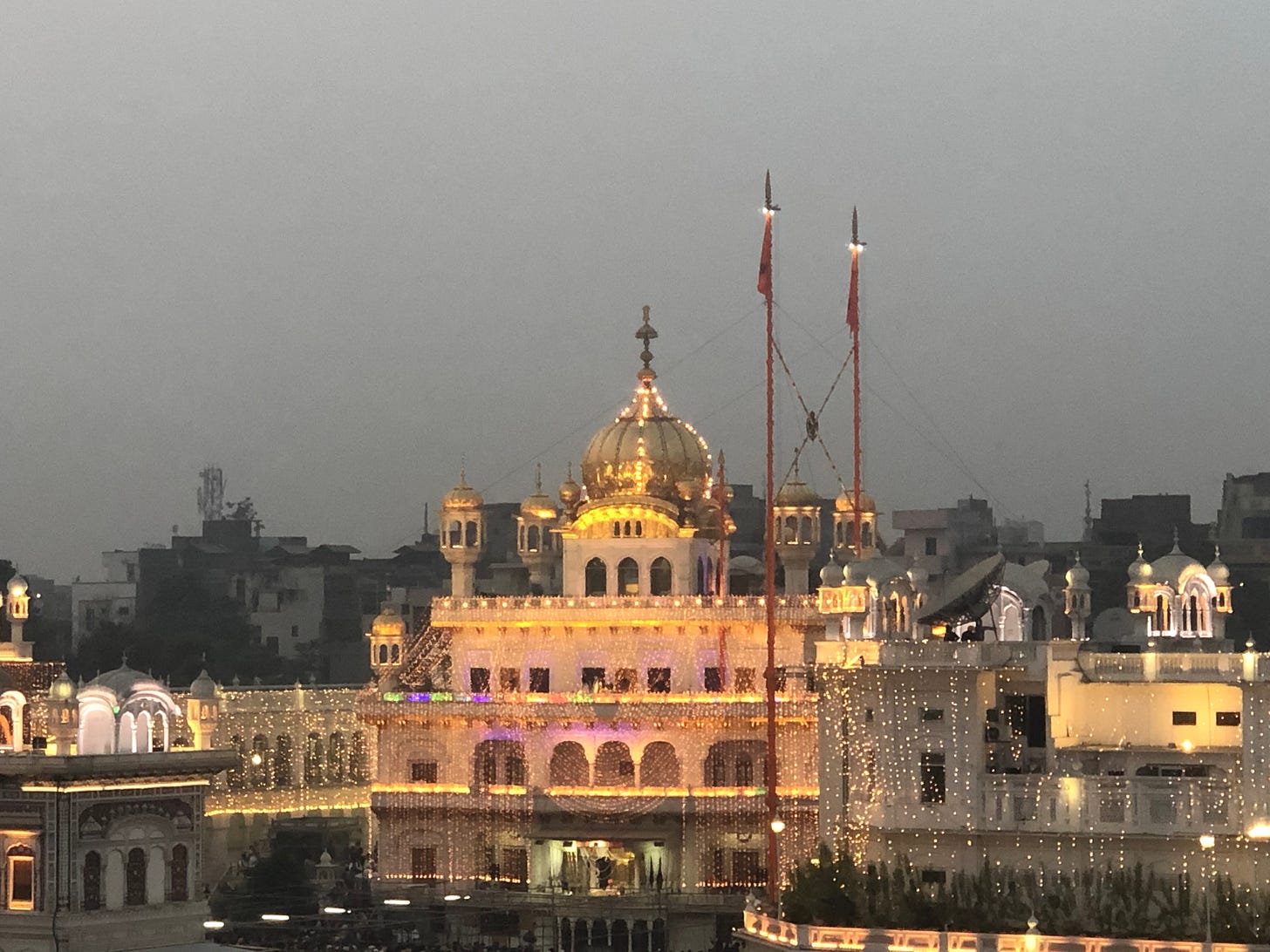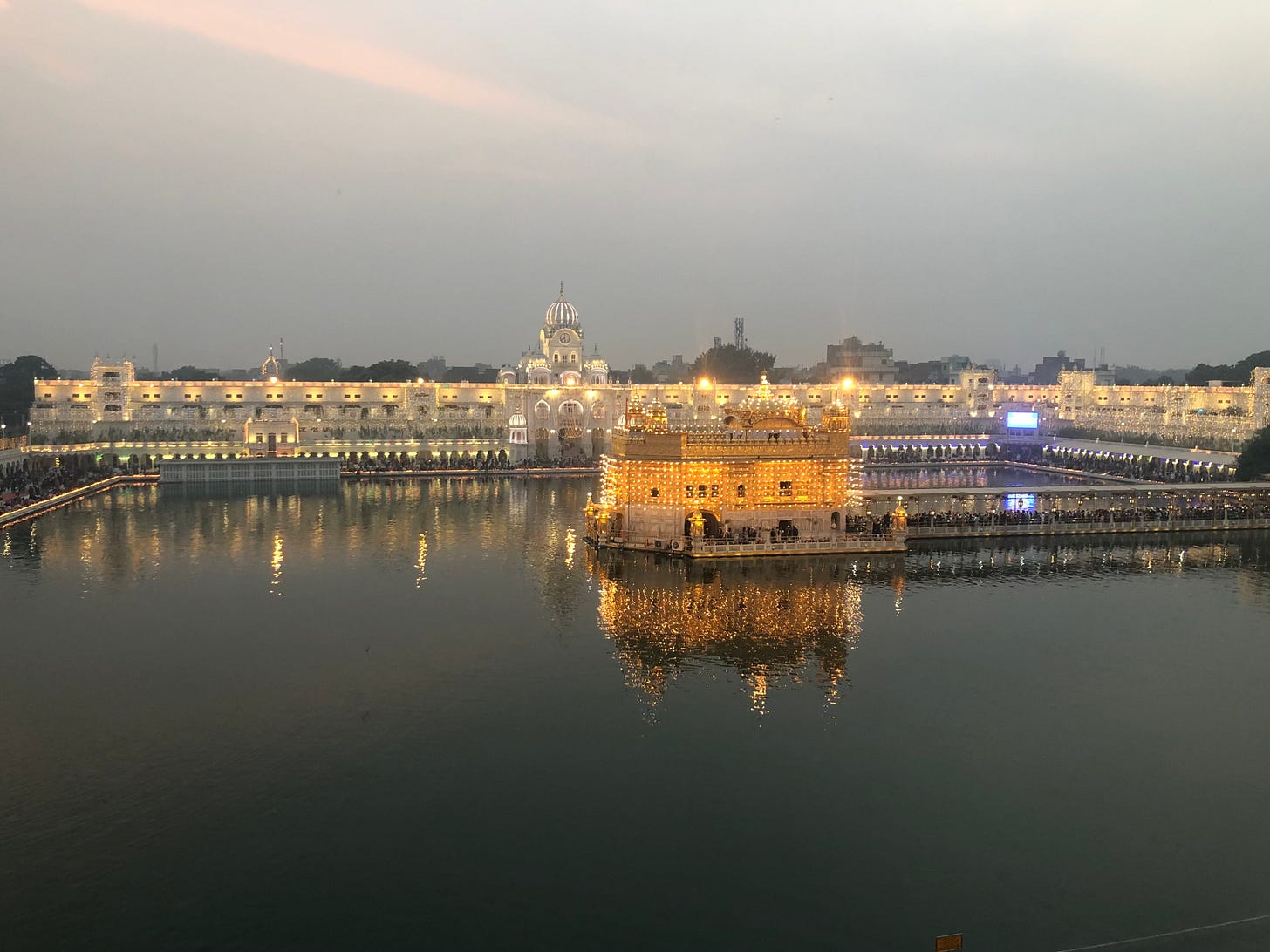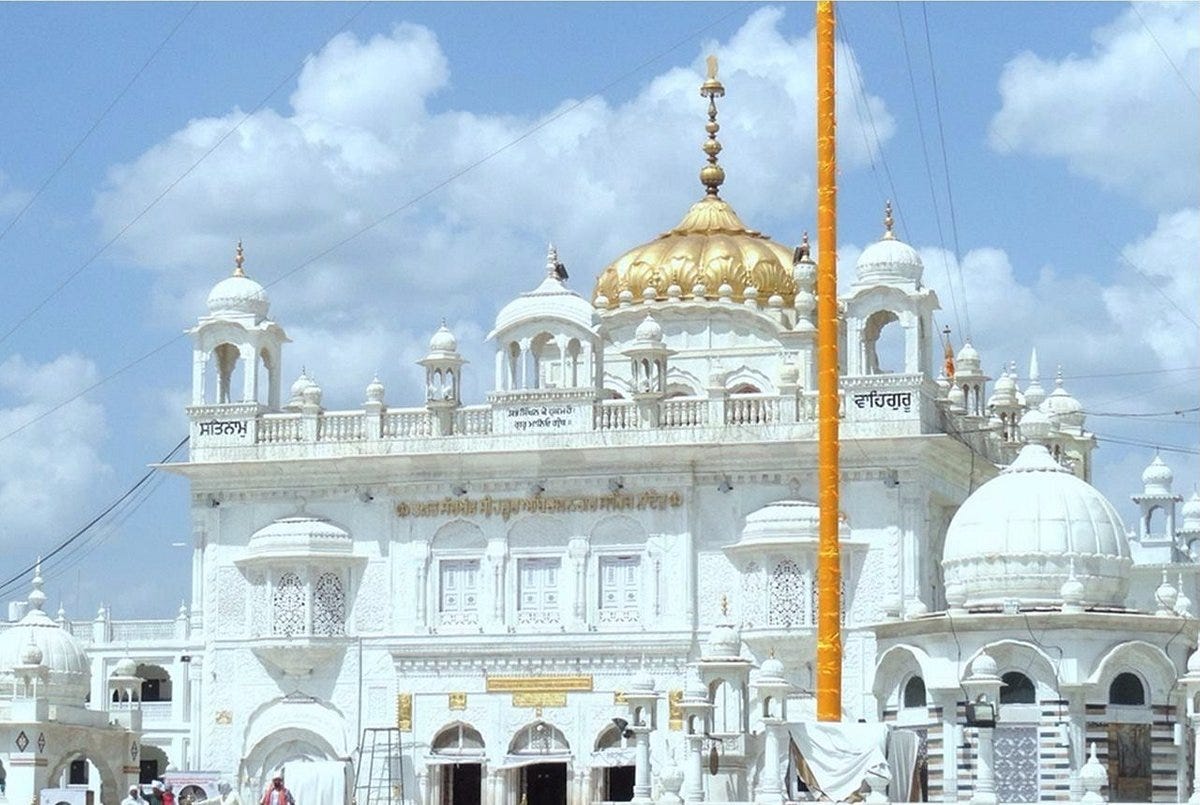ਰੇ ਮਨ ਐਸੋ ਕਰਿ ਸੰਨਿਆਸਾ: Pathway to an Immersive 'Sanyaas'
Guru Gobind Singh ji, illuminates in a few priceless verses, the roadmap for an ordinary householder to become an authentic "karmayogi", without renouncing the worldly duties.
Roadmap to an Immersive ‘Sanyaas’
The Shabad "Re Man Aiso Kar Sanyasa” (ਰੇ ਮਨ ਐਸੋ ਕਰਿ ਸੰਨਿਆਸਾ), a prominent hymn forming part of the esteemed ‘Shabad Hazare’ collection, occupies a significant place in the ‘Dasam Granth’. Composed by Guru Gobind Singh Ji, the Tenth Sikh Guru, this Shabad is an eloquent articulation of a spiritual paradigm that bridges the seeming dichotomy between worldly responsibilities and the quest for spiritual connection. It echoes the rich tapestry of wisdom laid out in various revered ancient Indian spiritual texts, presenting a spiritually inclusive and balanced philosophy.
For a spiritual seeker deeply engaged and engrossed in worldly responsibilities, the fundamental paradox often arises: how to establish a profound connection with the Omniscient God without abandoning one's social and familial obligations, or taking the extreme step of becoming an ascetic? Guru Gobind Singh Ji elegantly resolves this complex dilemma. Through the spiritual wisdom encapsulated in a few divine verses of this Shabad, composed in the evocative Raag Ramkali, Guru Sahib illuminates a straightforward path that harmonises spiritual seeking with worldly being. By doing so, he offers a pragmatic spiritual roadmap that guides the devotee, the seeker, and indeed anyone embedded in the multifaceted roles of worldly life, towards a fulfilling spiritual journey.
Line-by-Line Analysis
ਰਾਮਕਲੀ ਪਾਤਿਸਾਹੀ ੧੦(Raga Ramkali Paatasaahee 10)
ਰੇ ਮਨ ਐਸੋ ਕਰਿ ਸੰਨਿਆਸਾ
(Re Man Aaiso Kari Saanniaasaa)
O mind! Practise asceticism in this way.
ਬਨ ਸੇ ਸਦਨ ਸਬਾਇ ਕਰਿ ਸਮਝਹੁ ਮਨ ਹੀ ਮਾਹਿ ਉਦਾਸਾ॥੧॥ ਰਹਾਉ॥
(Ban Se Sadan Sabai Kar Samajhahu Man Hee Maahi Audaasaa ||1|| Rahaau)
Consider your house as the forest and remain unattached within yourself.
ਜਟਾ ਕੀ ਜਟਾ ਜੋਗ ਕੋ ਮਜਨੁ ਨੇਮ ਕੇ ਨਖੁਨ ਬਢਾਉ॥
(Jata Kee Jattaa Joga Ko Majanu Nema Ke Nakhuna Badhaao)
Consider continence as matted hair, Yoga as the ablution, and daily observances as your nails.
ਗਿਆਨ ਗੁਰੂ ਆਤਮਾ ਉਪਦੇਸਹੁ ਨਾਮ ਬਿਭੂਤ ਲਗਾਉ॥੧॥
(Giaan Guroo Aatama Aupadesahu Naam Bibhoota Lagaao ||1||)
Consider knowledge as the preceptor instructing your soul, and apply the Name of the Lord.
ਅਲਪ ਅਹਾਰ ਸੁਲਪ ਸੀ ਨੀਂਦਰਾ ਦਇਆ ਛਿਮਾ ਤਨ ਪਰੀਤੀ॥
(Alapa Ahaara Sulapa See Niaandaraa Dayaa Chhimaa Tan Pareeti)
Eat less, sleep less; cherish mercy and forgiveness.
ਸੀਲ ਸੰਤੋਖ ਸਦਾ ਨਿਰਬਾਹਿਬੋ ਹਵੈਬੋ ਤ੍ਰਿਗੁਨ ਅਤੀਤ॥੨॥
(Seela Saantokh Sadaa Nribaahibo Havaibo Triguna Ateet ||2||)
Practise gentleness and contentment; remain free from the three modes of material nature.
ਕਾਮ ਕ੍ਰੋਧ ਹੰਕਾਰਾ ਲੋਭ ਹਠ ਮੋਹ ਨਾ ਮਨ ਮੋ ਲਾਵੈ॥
(Kaam Karodha Haankaara Lobha Hattha Moha Na Man Mo Layaavai)
Keep your mind unattached from lust, anger, greed, arrogance, insistence, and infatuation.
ਤਬ ਹੀ ਆਤਮਾ ਤਤੁ ਕੋ ਦਰਸੈ ਪਰਮਾ ਪੁਰਖੁ ਕਹਾ ਪਾਵੈ॥੩॥੧੧॥
(Taba Hee Aatama Tata Ko Darsai Parma Purkh Kaha Paavai ||3||11||)
Then, you will visualise the supreme essence and realise the supreme Purusha.
Raag Ramkali
Raag Ramkali is a musical measure that finds frequent expression in the Guru Granth Sahib (ਗੁਰੂ ਗ੍ਰੰਥ ਸਾਹਿਬ), the central scripture of Sikhism, personified as a living Guru. Traditionally, Raag Ramkali is associated with the early morning hours and is meant to inspire feelings of humility and devotion. Here, the Tenth Guru, Dashmesh Pita Guru Gobind Singh Ji (ਦਸ਼ਮੇਸ਼ ਪਿਤਾ ਗੁਰੂ ਗੋਬਿੰਦ ਸਿੰਘ ਜੀ), utilises this Raag to delve deep into spiritual concepts. The Raag encapsulates a sense of serenity and internal focus, aligning well with the Shabad's emphasis on inner transformation and self-mastery.
Arguably, one of the best renditions of the Shabad "Re Man Aiso Kar Sanyasa" (ਰੇ ਮਨ ਐਸੋ ਕਰ ਸੰਨਿਆਸਾ) has been by Asha Bhonsle in the Punjabi film "Nanak Naam Jahaz Hai" (ਨਾਨਕ ਨਾਮ ਜਹਾਜ਼ ਹੈ), released in 1969. Asha Bhonsle's soul-stirring rendition in the film has not only captivated general audiences but has also deeply resonated with devotees on a quest for spiritual enlightenment. Guru Gobind Singh Ji's strategic choice of Raag Ramkali serves to underscore the significance of the internal spiritual journey over mere external rituals, thus amplifying the core messages of the Shabad. This judicious use of the Raag contributes to crafting a devotional ambience and emotional resonance, facilitating a deeper connection between listeners and the profound teachings of the Guru
Summing Up
In the spiritually evocative Shabad "Re Man Aiso Kar Sanyasa” (ਰੇ ਮਨ ਐਸੋ ਕਰਿ ਸੰਨਿਆਸਾ), Guru Gobind Singh Ji offers an extraordinarily pragmatic approach to spirituality that is deeply rooted in the day-to-day experience of the common individual. Instead of advocating for ascetic withdrawal from worldly affairs, Guru Sahib emphasises a form of spiritual discipline achievable within the realm of domestic life. The message conveyed is unambiguous: spirituality need not be separated from worldly responsibilities; rather, one's home and professional life can serve as fertile ground for spiritual awakening. By mastering one's mind and detaching from material obsessions, the individual moves towards enlightenment. This notion encapsulates the core tenets of Sikhism—engagement in worldly, familial, and societal responsibilities without developing a sense of attachment to material things, but instead, with an unwavering devotion to Akal Purakh, the Omniscient God.
Universal Message
This enlightening philosophy bears striking parallels with the ancient Indian concept of a 'Karmayogi' as illustrated in the timeless Bhagavad Gita by Lord Krishna. A Karmayogi lives in the world and takes part in worldly duties while remaining spiritually focused. The Guru's teachings, therefore, are not merely confined to the Sikh faith but have a universal resonance that transcends religious barriers. It provides a holistic roadmap for every spiritual seeker engaged in daily affairs, emphasizing that it is not the renunciation of worldly life that leads to enlightenment, but how one lives that life. This pluralistic message resonates across different faiths and philosophies, serving as a universal guidepost for anyone striving for spiritual fulfilment while navigating the complexities of worldly existence.









True 🙏🙏🙏🙏🙏
Waheguru ji ka Khalsa, Sri Waheguru ji ki Fateh 🙏